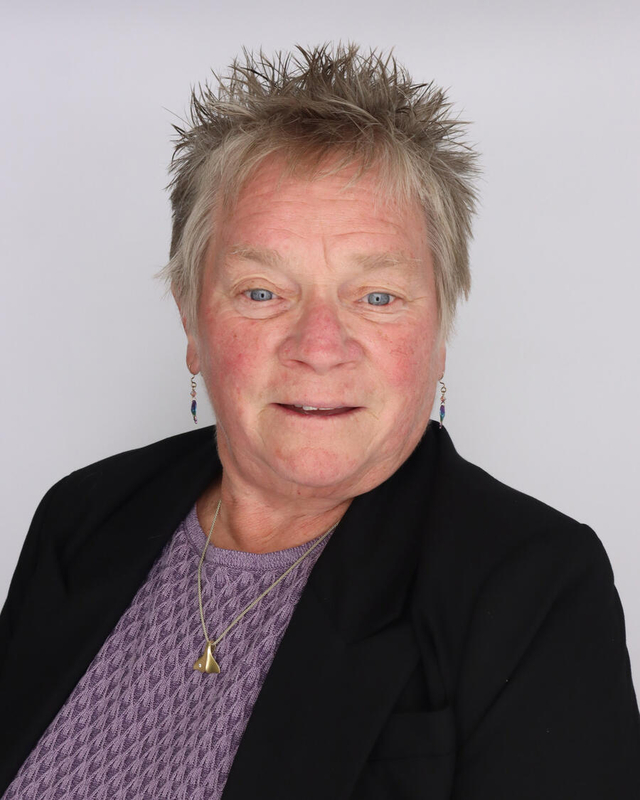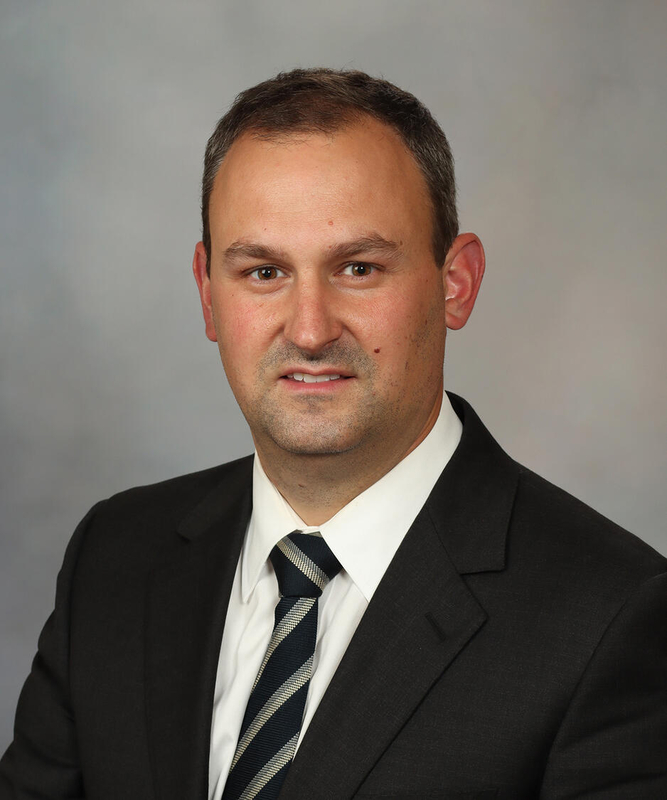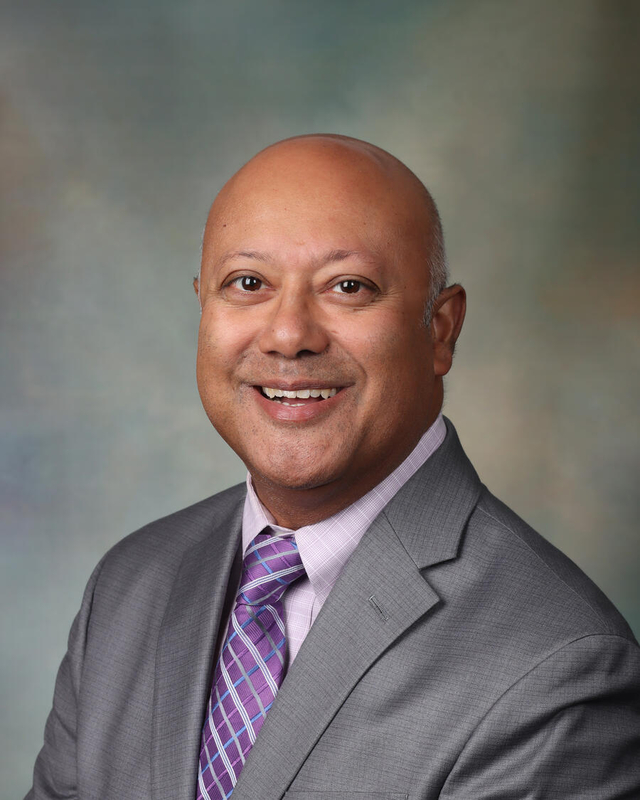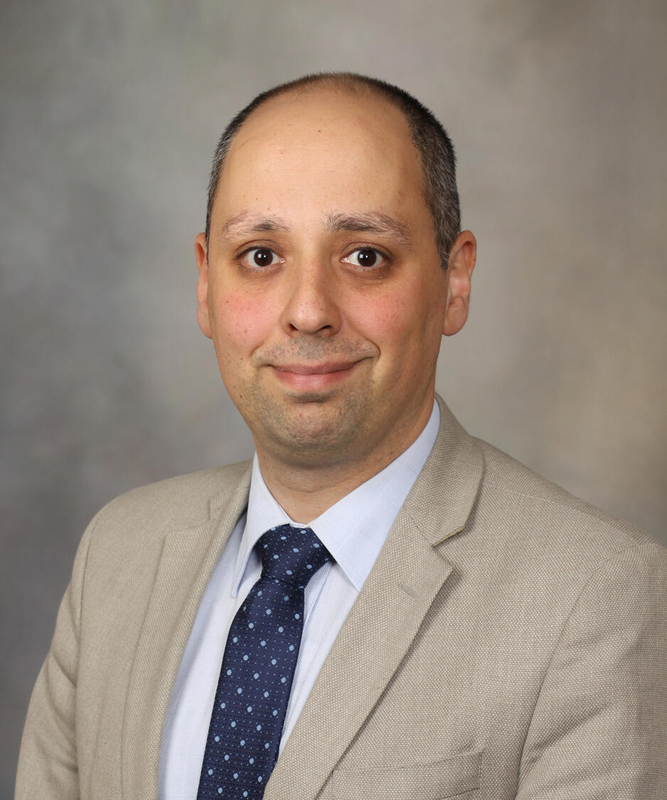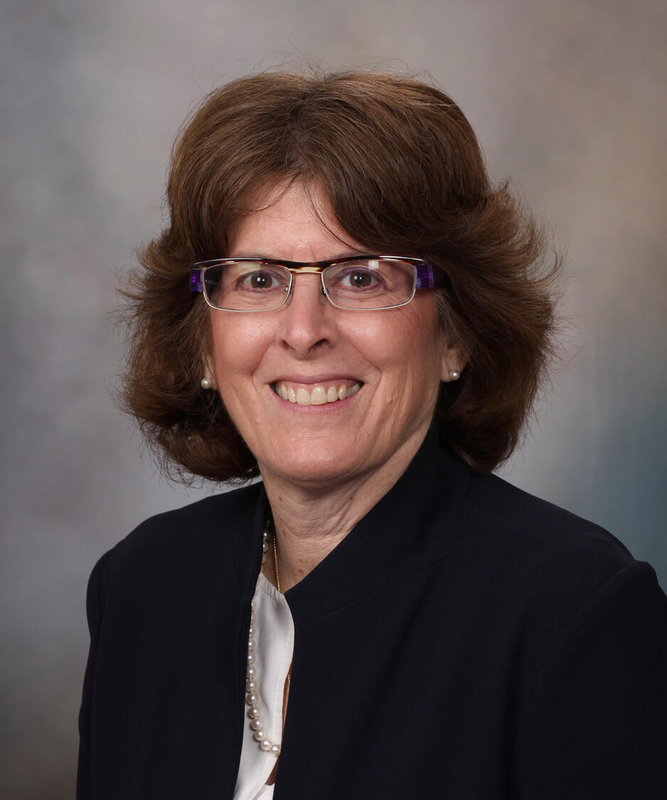Presented by the Center for Individualized Medicine
Individualized medicine, genomics, and associated technologies that drive patient care are rapidly advancing, outpacing the education available. Individualized medicine, focusing on what makes each of us unique, is becoming an important consideration in patient care. The Genes & Your Health podcast miniseries aims to distill what is being learned related to genomics into practical content the primary care provider and health care teams can use in patient care.
Denise M. Dupras, M.D., Ph.D., Moderator |
Listening is free and no CME Credit is available for this series.
Mayo Clinic Talks is a podcast series targeted to the primary care clinician community.
Listen to this episode on your favorite podcast app below.
Listen on your favorite podcast app below.
| SEASON FIVE - 2025 | ||
|---|---|---|
Guest: | Genes and Your Health Series: The Impact of Ancestry on Genes and Health Disparities June 26, 2025 | Dr. Melissa Davis delves into the profound influence of genetic ancestry on health outcomes and disparities. Her pioneering work in disparities genomics sheds light on how biological determinants intersect with systemic marginalization to exacerbate cancer health disparities. Dr. Davis discusses groundbreaking research linking ancestry to tumor biology, particularly in breast, prostate, and gynecologic cancers. This episode offers a compelling narrative on the evolving immune system's role in tumor aggressiveness and resistance to standard care, offering a new lens for addressing health inequities. |
Guest: John R. Giudicessi, M.D., Ph.D. | Genes and Your Health Series: Cardiology and Genetics June 19, 2025 | Dr. Giudicessi, a leader in cardiovascular genetics and gene therapy research, discusses the latest advancements in understanding and treating genetic arrhythmias and cardiomyopathies. This episode provides a comprehensive look at how genetics is revolutionizing cardiovascular care, empowering physicians to offer more precise, patient-centered treatments. Dr. Giudicessi’s insights underscore the transformative potential of genetic research in improving outcomes for patients with inheritable cardiovascular diseases. |
Guest: Jewel J. Samadder, M.D. | Genes and Your Health Series: Colon Cancer May 29, 2025 | In this episode of Mayo Clinic Talks, Dr. Denise Dupras interviews Dr. Jewel Samadder about colon cancer, with a focus on how genetics and family history influence cancer risk and screening strategies. Dr. Samadder emphasizes empowering primary care providers to identify patients who may benefit from genetic evaluation and early colonoscopy. He encourages clinicians to take thorough family histories and use them to guide screening strategies, helping catch cancer early — or prevent it entirely. |
Guest: Saad J. Kenderian, M.B., Ch.B. | May 22, 2025 | Dr. Saad Kenderian discusses the use of CAR-T cell therapy, a groundbreaking treatment that genetically modifies a patient's T-cells to target and destroy cancer cells, particularly in blood cancers like leukemia and lymphoma. He highlights the importance of identifying eligible patients, monitoring treatment response, and applying genomics to guide the future of personalized cancer immunotherapy. |
Guest: Michael Zimmer, Ph.D. | Genes and Your Health Series: mRNA: What it is, What it Does, and Hope in Rare Diseases Aprill 24, 2025 | This episode of Genes & Your Health welcomes Dr. Michael Zimmer from Moderna Therapeutics, who discusses how mRNA technology is being applied to treat rare genetic diseases, especially liver-based metabolic disorders. Dr. Zimmer explains how mRNA can help the body produce missing proteins, the challenges of delivering these therapies, and the promise they hold for previously untreatable conditions. |
Guests:
| Genes and Your Health Series: Microbiome Wellness Index 2 April 17, 2025 | This episode of Genes & Your Health presents the results of the Gut Microbiome Wellness Index 2 study, which examines the differences between the gut microbiomes of healthy and disease-affected populations. Drs. Nelson and Sung discussed a potential future where a stool gut microbiome profile could be used as a barometer of general gut health and outlined how the microbiome can be altered and used to predict overall health. They also covered factors that can contribute to returning the gut microbiome to healthy status after a disruption. |
| SEASON FOUR - 2024 | ||
Genes and Your Health Edition | GeneRx: Revolutionizing Primary Care with Pharmacogenomics Denise M. Dupras, M.D., Ph.D.; Isa J. Houwink, M.D., Ph.D. | Pharmacogenomics (PGx) is transforming everyday primary care practice. By using patients’ genetic profiles, providers are guiding more precise, personalized treatments. In this episode of Genes & Your Health podcast, primary care physicians Dr. Denise Dupra and Dr. Isa J. Houwink discuss their practical applications and integration of PGx. The tips, tools and case studies shared, including how to optimize medication outcomes, reduce adverse drug reactions and deliver better patient care, is beneficial for all primary care providers. | |
Genes and Your Health Edition | Antisense Oligonucleotide (ASO) Therapeutics for Rare Genetic Disease Denise M. Dupras, M.D., Ph.D.; Margot A. Cousin, Ph.D. | This episode of Genes & Your Health provides a comprehensive look at how ASO (Antisense Oligonucleotide) therapy is paving the way for personalized medicine and offering new hope for patients with previously untreatable conditions. Margot A. Cousin, Ph.D., an Assistant Professor of Medical Genetics in the Department of Molecular Medicine and Director of the N-or-1 Therapeutics Program in the Center for Individualized Medicine, walks us through an overview of what antisense oligonucleotides are and how they work. We then discuss clinical applications, success stories, and potential new applications to transform treatment approaches. | |
Genes & Your Health Edition | Microbiome and Ovarian Cancer Denise M. Dupras, M.D., Ph.D.; Marina Walther-Antonio, Ph.D. | Can microbe populations affect women’s health in areas like ovarian cancer or predicting pre-term delivery? Tune into this episode of Genes & Your Health with Marina Walther-Antonio, Ph.D., a microbiome researcher within Mayo Clinic's Center for Individualized Medicine, to learn what recent research studies suggest about the interaction of the microbiome, the environment, and the genome. | |
Genes and Your Health Edition | Legal Aspects of Genetic Testing Denise M. Dupras, M.D., Ph.D.; Jessica Kelly, JD | Join our expert hosts as they delve into the intersection of genetic science and the legal landscape in this episode of Genes & Your Health. Jessica Kelly, J.D., and Denise M. Dupras, M.D., Ph.D., discuss the latest advancements in genetic research, personalized medicine, and how these innovations are shaping the future of healthcare. They also explore the legal implications, from privacy concerns and ethical considerations to the policies governing genetic data usage and patient rights. Whether you're a healthcare professional, a legal expert, or simply curious about the future of genetics, this episode offers valuable insights and thought-provoking discussions. Tune in to stay informed about the cutting-edge developments at the nexus of genetics and the law. | |
AI in Cardiology and Primary Care Denise M. Dupras, M.D., Ph.D.; Peter A. Noseworthy, M.D., M.B.A. |
Rapid advances in artificial intelligence, or AI, are changing everyday medical practice. In this episode of Genes & Your Health, explore the transformative role of AI in cardiology and primary care practices. Don’t miss this fascinating episode of Genes & Your Health with Peter A. Noseworthy, M.D., M.B.A., Professor of Medicine and Chair of the Division of Heart Rhythm Services at the Mayo Clinic. We’ll discuss the power of AI in early detection of heart disease, streamlined workflows for better patient outcomes, and ethical considerations of using AI in healthcare. | |
Answers from the Lab: Cell Free DNA and Testing for Cancer Denise M. Dupras, M.D., Ph.D.; Aaron S. Mansfield, M.D. |
Can a simple blood draw diagnose cancer? Join this episode of Genes & Your Health with Aaron Mansfield, M.D., a Mayo Clinic medical oncologist whose focus is on thoracic malignancies and early therapeutics, as we discuss the science behind non-invasive cancer screening, how cell-free DNA tests can help diagnose some cancers earlier than ever before, what limitations exist, and what promise the future holds.
| |
| SEASON THREE - 2023 | ||
|---|---|---|
Respiratory Disease and Health Disparities Denise M. Dupras, M.D., Ph.D.; Victor E. Ortega, M.D., Ph.D. | Common respiratory diseases such as asthma and chronic obstructive pulmonary disease (COPD) often present differently in individuals. What is the genetic basis for this difference and how can we use knowledge of genetic factors to support patient care? Additionally, the implications of applying genetics across diverse populations are explored. Listen in to hear about this and more in Mayo Clinic Center for Individualized Medicine’s Genes & Your Health podcast miniseries featuring Victor E. Ortega, M.D., Ph.D. | |
Genetic Informed Risk Assessments Denise M. Dupras, M.D., Ph.D.; Kullo, Iftikhar J., M.D. | While genetic conditions and risk for disease have traditionally been focused on monogenetic causes, it is now recognized that multiple genetic changes are often involved in risk for disease. What conditions are polygenetic and what should we be looking for to help identify these risks for our patients? Find out more in the latest episode of Mayo Clinic Center for Individualized Medicine’s Genes & Your Health podcast miniseries featuring Iftikhar J. Kullo. | |
Spotlight on PGx: Pain Denise M. Dupras, M.D., Ph.D.; Wayne Nicholson, M.D., Pharm.D.; Eric T. Matey, Pharm.D., R.Ph. | Do you know the correlation between pharmacogenomics (PGx), or the interaction between a patient’s genes and their response to medications, and pain management? How could you incorporate PGx into your pain management toolbox? And how can you use PGx to help inform appropriate medication and dosage? Tune into this episode of Mayo Clinic Center for Individualized Medicine’s Genes & Your Health miniseries, “Spotlight on PGx: Pain,” featuring Nick T. Nicholson, M.D., Pharm.D. and Eric T. Matey, Pharm.D., R.Ph. to find out! | |
Navigating the Genetic Testing World- The Role of a Genetic Counselor -Denise M. Dupras, M.D., Ph.D.; Jennifer L. Kemppainen, M.S., CGC | With increased availability and accessibility of genetic testing, genetic counselors are playing a critical role in helping patients understand family and medical histories and genetic indications and conditions that may impact them or their loved ones. How do genetic counselors help patients to feel comfortable and understand the often-confusing world of genetic testing? Learn more in this episode of Mayo Clinic's Center for Individualized Medicine Genes & Your Health podcast miniseries featuring Jennifer L. Kemppainen, M.S., CGC, Supervisor of Genetic Counselors and Assistant Professor in Medical Genetics at Mayo Clinic in Minnesota. | |
Ethical Considerations - Denise M. Dupras, M.D., Ph.D.; Karen Meagher, Ph.D. | In today’s world, primary care physicians have a variety of genetic and genomic testing available for patients. But what ethical considerations should be kept in mind during patient visits to ensure the needs of the patient always come first? Find out in this episode of Mayo Clinic Center for Individualized Medicine’s Genes & Your Health podcast miniseries featuring Karen Meagher, Ph.D, assistant professor in the Biomedical Ethics Research Program at Mayo Clinic in Minnesota. | |
| All in the Family Denise M. Dupras, M.D., Ph.D. Richard Presutti, D.O. | With the rapid changing field of genetic testing, a common question we receive from primary care providers is, “where do I start”? Well, it’s all in the family… history, that is. During this episode of Genes & Your Health, learn more about the importance of family history, what it can tell us, and different criteria to look for. This episode features Richard Presutti, D.O., an assistant professor and chair of the Department of Family Medicine for Mayo Clinic in Florida, and a co-director of Genomics in Action for Mayo Clinic’s Center for Individualized Medicine. | |
| SEASON TWO - 2022 | ||
|---|---|---|
Exposomics Denise M. Dupras, M.D., Ph.D.; Konstantinos N. Lazaridis, M.D. | What does the exposome mean? In this episode, we will define the exposome and explore how assessing exposures in an organized fashion will help us better understand the gene environment interaction. The guest for this episode of our Genes & Your Health edition from the Center for Individualized Medicine is Konstantinos N. Lazaridis, M.D., a Mayo Clinic physician in the division of gastroenterology and hematology, as well as the Bernard and Edith Waterman Director, Microbiome Program, Center for Individualized Medicine and Carlson and Nelson Endowed Director, Center for Individualized Medicine. | |
Polycystic Kidney Disease Denise M. Dupras, M.D., Ph.D.; Fouad T. Chebib, M.D. | What is polycystic kidney disease? Is it all genetic? As providers, what should we be considering and what patients should we think about screening with genetic testing? Join this episode of our Genes & Your Health edition from the Center for Individualized Medicine to learn more about the role of genes in polycystic kidney disease. This episode features Fouad T. Chebib, M.D., a Mayo Clinic nephrologist from Jacksonville, Florida, whose specialty is in polycystic kidney disease. | |
Breast Cancer & SNPs- What are they and what do we know? Denise M. Dupras, M.D., Ph.D.; Sandhya Pruthi, M.D. | What is precision prevention? As providers, what can we do to best determine who is at high risk for breast cancer, and when to make appropriate decisions about interventions to reduce an individual’s risk for getting breast cancer? In this episode of our Genes & Your Health edition from the Center for Individualized Medicine, we will learn more about breast cancer, breast cancer genes and the role of single nucleotide polymorphisms (SNPs) in breast cancer risk assessment. Our guest is Sandhya Pruthi, M.D., a Mayo Clinic physician in breast disease and a consultant and Professor of Medicine in the Department of General Internal Medicine in Rochester, Minnesota. | |
Neurodegenerative Brain Disease Denise M. Dupras, M.D., Ph.D.; Bradley F. Boeve, M.D. | Family history is so important in deciphering genetic causes for neurodegenerative disorders. As we study polygenetic situations, we are learning that often it is not just one gene, but the contribution of multiple genes that lead to the presentation of a patient with cognitive or brain function deterioration that occurs at a variable rate. In this episode, we discuss genes and neurodegenerative brain disease, and our guest is Bradley F. Boeve, M.D., a consultant in the Department of Neurology and the Center for Sleep Medicine, as well as a professor of neurology at the Mayo Clinic in Rochester, Minnesota. | |
Epigenomics Denise M. Dupras, M.D., Ph.D.; Alexandre Gaspar Maia, Ph.D. | Epigenomics is a fascinating field in which researchers chart the locations and understand the functions of all chemical tags that mark the genome. The epigenome is the first boundary from the exterior world to our DNA sequence, and it can change dramatically. This episode discusses the state of the art of epigenomics analysis and the epigenome in the context of specific cells. Additionally, it explores the future of epigenomics for individualized medicine and in better understanding genetics of treatment resistance. The guest for this episode is is Alexandre Gaspar Maia, Ph.D., an assistant professor in the Functional Genomics Laboratory at Mayo Clinic. | |
Precision medicine for obesity: from phenotypes to multi omics Denise M. Dupras, M.D., Ph.D.; Andres J. Acosta, M.D., Ph.D. | The obesity epidemic continues to escalate in the United States and obesity rates are increasing around the world. It is estimated that by 2030, 50% of adults and 25% of children worldwide will be obese. Patients are the interaction of their genetics and environment; this episode explores the importance of understanding the mechanisms behind food intake regulation and weight to develop individualized therapies to treat obesity. Our guest for this episode is Andres J. Acosta, M.D., Ph.D., a physician-scientist at Mayo Clinic in Rochester, Minnesota. He is also an assistant professor of medicine at Mayo Clinic College of Medicine and Science, and principal investigator of the Precision Medicine for Obesity Laboratory. | |
| SEASON ONE - 2021 | ||
|---|---|---|
| PART 1: Genomics and Healthcare, Why Does it Matter? Denise M. Dupras, M.D., Ph.D. Teresa M. Kruisselbrink, M.S., CGC Matthew J. Ferber, Ph.D. William C. Palmer, M.D. | For so long we've heard Genetic Testing is coming. Well guess what, its here! We have over 25 million people who have chosen to participate in direct to consumer testing alone. What does this mean for primary care and does it matter? Find out in our first podcast part of our Genes & Your Health miniseries from the Center for Individualized Medicine. | |
PART 1: How does viral genetics influence transmission, diagnosis and severity of COVID-19? | COVID-19. Variants. The future. Does one test fit all? Does the vaccination help with mutations? What makes the Delta variant more transmissible? Is there a hidden CoV-2 out there that we're missing? Join our 2nd episode of our Genes & Your Health miniseries from the Center of Individualized Medicine to learn about viral genetics influence on transmission, diagnosis, and severity of COVID-19. | |
| PART 1: Pharmacogenomics and its value for Primary Care Denise M. Dupras, M.D., Ph.D. Jessica A. Wright, Pharm.D., R.Ph. | Pharmacogenomics helps to identify how your patient’s DNA may affect their response to medications. But there's a lot of different genes! How do we get started? What resources are out there? Do we have to worry about every drug a patient's on? Find out these answers and more in the Genes & Your Health miniseries episode 3 from the Center for Individualized Medicine. | |
| PART 1: Genomics and Cancer: Primary Care Impact and Research Advances Denise M. Dupras, M.D., Ph.D. Niloy Jewel (Jewel) Samadder, M.D. | Can we find the cause of a patient’s cancer? Is it possible to provide targeted treatment to prevent future cancers by understanding what genetic predispositions a patient or their family members have? In a recently published study, nearly one in six to one in eight cancer patients, depending on which type of cancer they had, carried a genetic predisposition to the development of their cancer. How can we translate these findings into our practice for the benefit of our patients and their families? Tune in to episode 4 of our Genes & Your Health miniseries from the Center for Individualized Medicine. | |
| PART 1: How Does Your Microbiome Impact Your Health? Denise M. Dupras, M.D., Ph.D. Marina R. Walther-Antonio, Ph.D. | What is the microbiome? How does the microbiome interact with our body? How much of us is nurture, how much is nature? The whole concept of microbiome may be a new idea, but have no fear- this 5th instalment of the Genes & Your Health miniseries from the Center for Individualized Medicine is here to help answer those questions and more! | |
| PART 1: Why does it matter? Genes, Hormones and Women's Health Denise M. Dupras, M.D., Ph.D. Stephanie S. Faubion, M.D., M.B.A. Kejal Kantarci, M.D. Juliana (Jewel) M. Kling, M.D., M.P.H. | Hormone therapy- is it good or bad for women? What are the Myths? Is the varying experience of menopause genetic? Join the Center for Individualized Medicine’s miniseries Genes & Your Health episode 6 to dive into Women’s Health and hormones and what you need to know for your practice. |
| PART 2: Cell-Free DNA: Implications in Practice Denise M. Dupras, M.D., Ph.D. Minetta C. Liu, M.D. Myra J. Wick, M.D., Ph.D. | What is Cell-free DNA? How does this type of DNA interact with our body? How is it useful in the clinical setting? Advances in technologies has expanded our understanding of cell-free DNA and its implications. Where are we now and what can we look for in the future? Find out these answers and more in the 7th episode of the Genes & Your Health miniseries from the Center for Individualized Medicine. | |
| PART 2: Genomics for Cardiovascular Health in Primary Care Denise M. Dupras, M.D., Ph.D. Iftikhar J. Kullo, M.D. | What is familial hypercholesterolemia? Who should be tested for it? Are there genetic variants that are associated with cardiovascular disease? How young do we start screening? The 8th installment of the Genes & Your Health miniseries from the Center for Individualized Medicine is here to help answer these questions and more! | |
| PART 2: Preparing Your Practice for the Increased Use of Genomics Denise M. Dupras, M.D., Ph.D. Megan A. Allyse, Ph.D. Jennifer (Jenny) L. Anderson, M.S., CGC Radhika Dhamija, M.B.B.S. | Genetic testing is increasingly becoming mainstream. Not only is it first-line testing for many different indications, but we have begun seeing an increase in predictive genomics for healthy patients as well. How can your practice prepare for what is here and what is to come? Tune in to the 9th episode of the Genes & Your Health miniseries from the Center for Individualized Medicine to find out. | |
| PART 2: Predicting the Future: What Role is Artificial Intelligence Playing Today and What Can We Expect in the Future? Denise M. Dupras, M.D., Ph.D. Christopher (Chris) A. Aakre, M.D. Bradley J. Erickson, M.D., Ph.D. | Artificial Intelligence has begun being utilized in Radiology. In fact, it was boldly predicted that radiology would become an obsolete profession as a result! How has it altered this practice? How will it alter our practices moving forward? Join our 10th episode of our Genes & Your Health miniseries from the Center of Individualized Medicine to learn these answers and more! | |
| PART 2: Hot Topics in Phage Therapy Denise M. Dupras, M.D., Ph.D. Gina A. Suh, M.D. | What is Phage Therapy? When was it discovered? Where is it used? We know about antibiotics, antifungals, and antivirals, but this is a whole new world! Have no fear, episode 11 is here from the Genes & Your Health miniseries to help demystify all there is to know about Phages. | |

 Facebook
Facebook X
X LinkedIn
LinkedIn Forward
Forward
